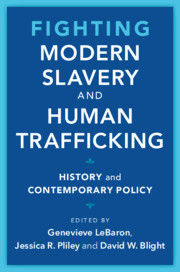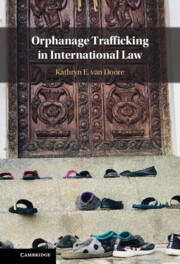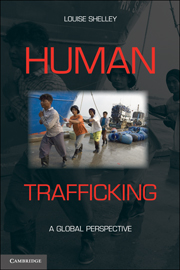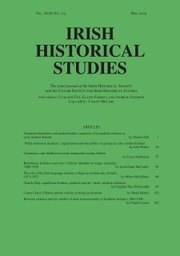Fighting Modern Slavery and Human Trafficking
Over the last two decades, fighting modern slavery and human trafficking has become a cause célèbre. Yet large numbers of researchers, non-governmental organizations, trade unions, workers, and others who would seem like natural allies in the fight against modern slavery and trafficking are hugely skeptical of these movements. They object to how the problems are framed, and are skeptical of the “new abolitionist” movement. Why? This book tackles key controversies surrounding the anti-slavery and anti-trafficking movements head on. Champions and skeptics explore the fissures and fault lines that surround efforts to fight modern slavery and human trafficking today. These include: whether efforts to fight modern slavery displace or crowd out support for labor and migrant rights; whether and to what extent efforts to fight modern slavery mask, naturalize, and distract from racial, gendered, and economic inequality; and whether contemporary anti-slavery and anti-trafficking crusaders' use of history are accurate and appropriate.
- Assembles leading scholars from the Yale Working Group on Modern Slavery tackle key controversies surrounding the anti-slavery movement
- Spans the 18th century to the present, bringing together insights about abolitionism and slavery
- Presents rare empirical evidence from across a range of policy areas, sectors, and supply chains on the (in)effectiveness of anti-slavery efforts
Reviews & endorsements
‘In bringing diverse historical and social science perspectives to the fraught conversation over ‘modern slavery’ and human trafficking, LeBaron, Pliley, and Blight demonstrate that research matters: whether in defining terms, estimating numbers, finding a usable past, or offering solutions to varieties of forced labor. Questioning the efficacy of neo-abolitionism and corporate social responsibility, key essays highlight the necessity for worker voices, worker-led enforcement, and confronting global inequalities.’ Eileen Boris, author of Making the Woman Worker: Precarious Labor and the Fight for Global Standards, 1919–2019
‘What inspiration can we take from the past, and what does require innovative thinking in the fight against modern slavery? By problematizing concepts such as neo-abolitionism, and analyzing existing controversies, this book is critical to understanding what should be never taken for granted in the struggle against slavery and human trafficking.’ Maria Grazia Giammarinaro, Former UN Special Rapporteur on trafficking in persons, especially women and children
‘This is a book for anyone daring to understand the complex story of slavery, historically and contemporarily. Whether we call the present condition modern slavery or human exploitation, the authors remind us that it is in our power to make slavery disappear. Read this book, but do not ignore it. Too much is at stake.’ Earl Lewis, Thomas C. Holt Distinguished University Professor of History, University of Michigan
Product details
June 2021Adobe eBook Reader
9781108905503
0 pages
This ISBN is for an eBook version which is distributed on our behalf by a third party.
Table of Contents
- Preface David W. Blight
- 1. Introduction: fighting modern slavery from past to present Genevieve LeBaron and Jessica R. Pliley
- 2. Counting modern Slaves: Historicizing the Emancipatory Work of Numbers Gunther Peck
- 3. Working Analogies: Slavery Now and Then Anna Mae Duane and Erica Meiners
- 4. Free soil, Free Produce, Free Communities Kevin Bales and Alison Gardner
- 5. Ambivalent Abolitionist Legacies: The League of Nations' Investigations into Sex Trafficking, 1927–1934 Jessica R. Pliley
- 6. Mexico's New Slavery: a Critique of Neo-Abolitionism to Combat Human Trafficking (la trata de personas) Grace Peña-Delgado
- 7. Undermining Labor Power: the False Promise of the Industry-Led Anti-Slavery Initiatives Elena Shih, J. J. Rosenbaum and Penelope Kyritsis
- 8. A Market in Deception? Ethically Certifying Exploitative Supply Chains Genevieve LeBaron
- 9. Preventing Human Trafficking: the Role of the IOM and the UN Global Compact on migration Janie Chuang
- 10. Integrated and indivisible: the Sustainable Development Agenda of Modern Slavery Survivor Narratives Zoe Trodd, Andrea Nicholson and Lauren Eglen
- Afterword Luis C. deBaca.






